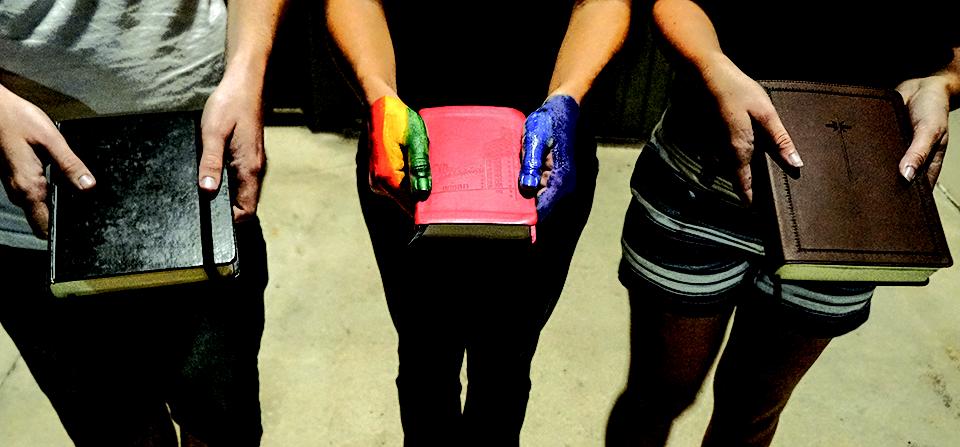The fight for faith-based institutions and LGBT students’ rights invaded students’ lives over the summer through California Senate Bill 1146.
Disclosure and Recourse
In February, Senator Ricardo Lara introduced the bill with the main purposes of protecting LGBT students, having faith-based institutions disclose their Title IX exemption information, and recourse for students feeling discriminated against, said Lee Wilhite, vice president of University Communications and Marketing.
After finding out about the bill in February, Biola’s administration tried to understand the implications of the bill by looking into the possible effects on the university and contacting legal counsel before explaining to students.
“It wasn’t something we had planned on seeing or hearing about and it showed up and then we quickly kind of went to work [on] what this meant—and tried to understand all the legal ramifications of all of this and would it in fact narrow our ability to function as university,” Wilhite said.
Once administration reached an understanding, they began looking for the best places and ways to communicate the information to students throughout the summer. The facts and news about the bill were covered on Biola Now, while the emails were more personable, said Brenda Velasco, assistant director of public relations and internal communications.
Loss of Grants
One of the issues communicated to students included the possible losing of Cal Grants if the bill passed and the university did not comply with the new rules regarding the treatment of students outlined in the bill.
“There was concern about where it could end up … knowing how many students could lose that and if we lost a lot of students as an institution, what would be the impact on Biola,” said Geoff Marsh, senior director of financial aid. “There was talk, you know, can we look at fundraising for this, but … the amount of money that would have to be raised to replace that, it was enormous.”
Sophomore pre-clinical nursing major and Alpha East Senator, Ijah Lockett was one of the students concerned about their ability to return to Biola if they lost their Cal Grants.
“I was kind of afraid especially in regards to the Cal Grant … I was like, that’s the only way I’m able to afford Biola, like are you serious,” Lockett said. “So yeah, I was kind of afraid, especially because [I’m] already struggling financially affording Biola so that was another ‘why?’ like ‘why would someone do that?’”
Another ramification included the stripping of faith-based institutions’ ways of running their programs, such as the requirement to attend chapels, community standards and other practices which adhere with religious tenets.
“Honestly, it kind of scared me at first [because] that’s something that I came to Biola [for], so I can have a Christian education, and it was a little scary to be like, ‘Oh my gosh, that could be taken away from me,’” said Taliah Hightower, sophomore biological science major.
Presidential Addresss
While students learned about all the possible implications, President Barry Corey addressed these issues in a video and several articles, including a claim by Senator Lara that faith-based institutions discriminate against certain people, such as LGBT students.
“Faith-based colleges and universities are not asking for the freedom to discriminate. We are asking for the constitutionally protected freedom to live according to deeply held and time-honored beliefs within a pluralistic society,” Corey said in an editorial for the Orange County Register.
The claim that faith-based institutions discriminate comes from the fact that many apply for a Title IX exemption. Title IX keeps people from being discriminated against on the basis of sex in education and activities receiving federal funding. In 2014, it was expanded to protect transgender students.
“We want all of our students to feel safe and secure and supported here at Biola; we know that there’s going to be some increased student group activity this fall for students that have same-sex attraction,” Wilhite said. “We want [students] to be heard, understood and cared for and loved; we want to exude a kindness.”
While Biola continues to work on making all students feel included, Erin Green, executive director of Biolans’ Equal Ground and former Biola student, believes change is still needed to ensure LGBT students receive the same rights as other students.
“I think the response from the faculty is good, it sounds really nice and I think it sounds like they’re trying really hard to love the LGBT community. The problem is is that there’s been nothing done to change the micro-aggressions that are happening in the classroom, at least as far as I know,” Green said.
The final version of the bill amended on Aug. 19, 2016 only requires universities to publicly disclose their Title IX exemption, beginning in the 2017-2018 school year.
With the threat of similar legislation in the future, Biola plans to interact more with elected officials, including the beginning of a grassroots movement to invite the officials to visit the campus to see students’ accomplishments as well as their impact on the community, Wilhite said.
“In addition to the grassroots movement and trying to just do what we can to host and build relationships with… officials, we are setting up this entity with other faith-based schools in California to be more strategic in helping have a regular presence in Sacramento,” Wilhite said.
At the end of August, the final bill passed the full Assembly and Senate, sending the bill to Governor Jerry Brown who must respond by the end of September.







